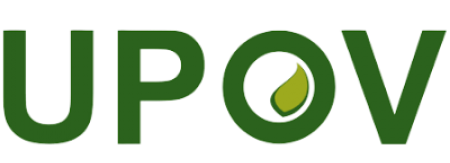
The Union for the Protection of New Varieties of Plants (UPOV)
The Union for the Protection of New Varieties of Plants (UPOV) is particularly relevant for the realization of Farmers’ Rights with respect to its provisions on requirements for national legislation on plant breeders’ rights. Dependent on how such legislation is formulated, it may to various degrees limit farmers practices of saving, using, exchanging and selling farm-saved seed of protected varieties.
The Convention of the Union for the Protection of New Varieties of Plants (UPOV) was adopted already in 1961, thereby establishing UPOV as an organization, as well as international rules for its member states on the protection of new varieties of plants. The mission of UPOV is to provide and promote an effective system of plant variety protection, with the aim of encouraging the development of new varieties of plants, for the benefit of society. The UPOV Convention entered into force in 1968 and was revised in 1972, 1978 and 1991, each time strengthening plant breeders’ rights. Today, most UPOV member countries are bound to UPOV 1991, but a few are still bound to UPOV 1978. UPOV 1978 was closed for accessions in 1998. Thus, countries wishing to join UPOV, will have to comply with the 1991 Act of the UPOV Convention.
UPOV 1991 provides that the following acts relating to propagating material of the protected variety shall require the authorization of the breeder: (i) production or reproduction (multiplication), (ii) conditioning for the purpose of propagation, (iii) offering for sale, (iv) selling or other marketing, (v) exporting, (vi) importing, (vii) stocking for any of the purposes mentioned in (i) to (vi), above.
Under UPOV 1978, farmers were implicitly free to save, use and exchange farm-saved seed of protected varieties but not to sell it. Under UPOV 91, national governments are, as an exemption from the general rule, entitled to decide whether farmers shall be allowed – within reasonable limits and safeguarding the legitimate interests of the rights holder – to reuse the harvest of protected varieties on their own land holdings, without the authorization of the rights holder (Article 15). Exchange and marketing of seed of protected varieties without the authorization of the rights holder is prohibited. As such, the UPOV Convention is a clear expression of an ownership approach to genetic resources, as compared to a stewardship approach.
The secretariats of the Plant Treaty and UPOV have worked to identify areas of possible interrelations between the two agreements, inter alia through a symposium in 2016. As a follow up of one of the recommendations from that symposium, a Working Group to develop guidance concerning smallholder farmers in relation to private and non-commercial use of protected varieties (WG-SHF) has been established under UPOV. The working group is considering to what degrees smallholder farmers in developing countries may continue their customary practises of saving, using, exchanging and selling – in small amounts – farm-saved seeds that occasionally might be of protected varieties, among themselves. Such an interpretation of Art.15.1 of the 1991 Act of the UPOV Convention has broad support in Europe, including among member countries, the seed industry and civil society, but meet strong opposition from particularly Japan, but also from North and South America.
Text: Regine Andersen